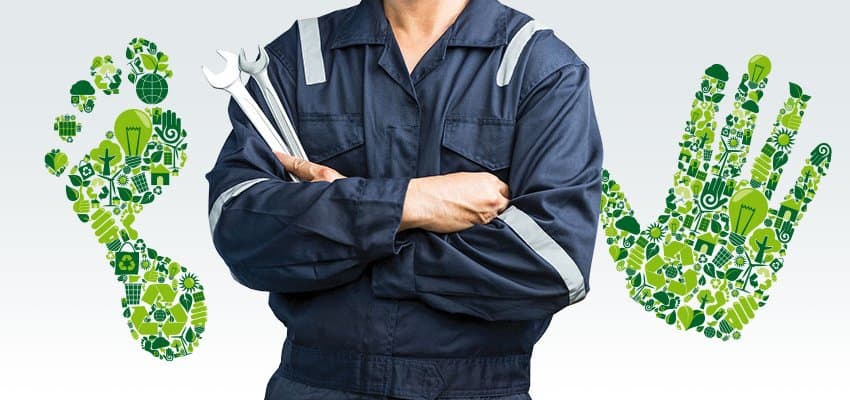Manufacturing businesses focused on lowering their impact upon the environment know their compressed air typically accounts for up to 40% of a manufacturing facility’s total energy bill.
So where should they focus – carbon footprint or handprint?
As compressed air uses so much energy in a typical manufacturing process, it's important that businesses look for ways to reduce their environmental impact to offset energy consumption. Over the last two decades, there has been an increased focus on reducing the global carbon footprint—initiatives such as the Paris Agreement set objectives regarding CO2 emissions to regain control over global warming. There are formulas to calculate your carbon footprint, allowing businesses to assess their impact and lower it where possible.
So what is the difference between handprint and footprint?
A carbon handprint is essentially the inverse of a carbon footprint. It involves products, services, and strategies that positively impact the environment and reduce climate load. Whereas the carbon footprint describes the negative effects we have on the environment, the carbon handprint focuses on the positive effects.
Cambs Compressors environmental handprint
Cambs Compressors creates an environmental handprint because its products and services allow its customers to reduce their carbon footprint. When we look at your compressed air usage, our aim is to make this element within your operations as close to zero as possible. Plus, when you reduce your compressed air energy use, you increase cost savings – making it a win-win situation.
- Audit your 'air use' carbon footprint
- Seek to reduce your energy consumption
- Provide practical, innovative options
Making you greener, safer and more profitable
Our aim is to continually provide our customers with highly ethical, environmental and practical solutions to maximise their efficiency. Cambs Compressors engineers can provide you with an expert 'environmental handprint' assessment free, this will identify inefficient equipment, maintenance procedures, and doing low cost/no cost measures such as leak detection and repair to reduce system waste. From preventative maintenance to a re-engineered system – our aim is to make you greener, safer and more profitable.



